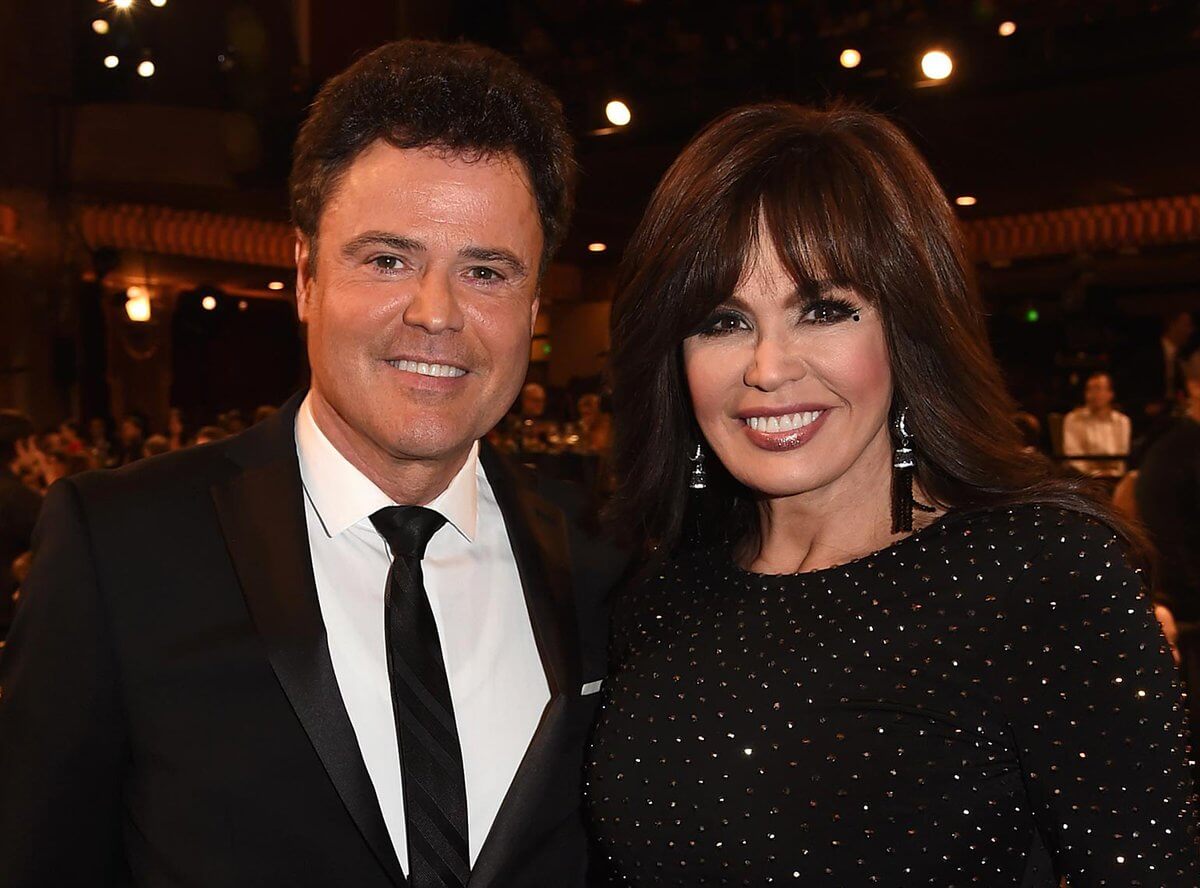Are Donny And Marie Mormon?

The world often knows Donny and Marie Osmond as a beloved brother-sister duo who captured hearts with their music, television shows, and stage performances. However, their identity is intricately tied to their upbringing and faith, particularly their affiliation with the Church of Jesus Christ of Latter-day Saints (LDS), commonly known as the Mormon Church. Understanding their religious background not only sheds light on their personal lives but also provides context to their cultural impact as entertainers.
In this article, we will explore the Osmonds' faith journey, its influence on their careers, and the broader implications of their Mormon identity in American pop culture.
Quick Info Table
| Aspect | Details |
|---|---|
| Full Names | Donny Osmond, Marie Osmond |
| Birth Dates | Donny: December 9, 1957; Marie: October 13, 1959 |
| Religious Affiliation | Church of Jesus Christ of Latter-day Saints (Mormon) |
| Notable Works | "The Donny & Marie Show," various albums, Broadway performances |
| Family Background | Raised in a devout Mormon family; part of a large family of performers |
The Osmond Family and Their Religious Background
Donny and Marie Osmond were born into a family deeply rooted in the teachings of the LDS Church. Their parents, George and Olive Osmond, instilled strong religious values in their children. The Osmond family is notable for their musical talents, which they showcased in the 1970s through various performances and television appearances.
Growing up in a devout Mormon household, faith was a cornerstone of their upbringing. The LDS Church emphasizes family, community service, and moral living, all of which have influenced the Osmonds' public personas and artistic choices. For instance, their music often reflects themes of love, family, and faith, resonating with many of their fans who share similar values.
The Intersection of Faith and Career
Early Career and Influence of Mormon Values
The Osmonds first gained fame as a family act, performing on The Andy Williams Show in the late 1960s. Their music, characterized by a wholesome image and catchy tunes, mirrored the values of their faith. The LDS Church encourages members to pursue their talents as a means of serving others, and the Osmonds embraced this principle wholeheartedly.
In addition to their musical endeavors, Donny and Marie starred in their own variety show, “Donny & Marie,” which aired from 1976 to 1979. The show was not just a platform for their musical talents; it also served as a reflection of their family-oriented values. The use of clean humor and positive messaging was a deliberate choice, aiming to appeal to families and foster an inclusive environment.
Navigating Fame with Faith
With fame came challenges, especially in maintaining their religious beliefs in an industry often at odds with Mormon values. The Osmonds have been open about their commitment to their faith, often discussing the importance of prayer, family, and service in their lives. This commitment has helped them navigate the pressures of celebrity culture while staying true to their roots.
Furthermore, Donny and Marie have used their platform to promote the positive aspects of their faith, addressing misconceptions about Mormons and sharing their experiences. Their public discussions about faith and spirituality resonate with both fans within and outside the LDS community, contributing to a broader understanding of the church's teachings and values.
The Broader Impact of Their Mormon Identity
Representation in Media
The Osmonds have played a significant role in representing the LDS Church in mainstream media. Their success has helped to break down stereotypes associated with Mormonism, showcasing a narrative of positivity, hard work, and family commitment.
In addition, their visibility as prominent figures in entertainment has inspired many young members of the church to pursue their passions, whether in music, acting, or other fields. This representation is crucial in a society often skeptical of religious groups, as it fosters a more nuanced understanding of the diversity within the LDS faith.
Cultural Contributions
Beyond their personal achievements, Donny and Marie Osmond's contributions to American culture are profound. Their music, such as the classic “One Bad Apple” and “Paper Roses,” has left a lasting mark. The duo’s performances often incorporate elements of their religious upbringing, emphasizing themes of love and resilience.
Moreover, their continued involvement in charitable activities, such as supporting various causes and organizations, aligns with the Mormon emphasis on community service. This commitment not only enhances their public image but also reinforces the idea that faith can inspire positive change in the world.
Challenges and Criticisms
Despite their success, Donny and Marie have faced challenges related to their faith. The entertainment industry’s often secular nature can clash with the values held by the LDS Church. Furthermore, the Osmonds have sometimes been criticized for their visibility and lifestyle choices, which some perceive as contradictory to traditional Mormon teachings.
However, the siblings have addressed these criticisms head-on, emphasizing the importance of individual choice within the framework of their faith. They advocate for living authentically, which includes navigating the complexities of fame while remaining true to their beliefs.
Conclusion: The Osmonds' Legacy
In summary, Donny and Marie Osmond exemplify the intersection of faith and artistry in a way that resonates with many. Their deep-rooted ties to the LDS Church have shaped their identities and careers, influencing their music, public personas, and philanthropic efforts. Through their journey, they have become symbols of how one can successfully integrate personal beliefs with professional aspirations.
As they continue to perform and engage with their audience, the Osmonds' legacy as entertainers and representatives of the Mormon faith endures. Their story serves as a reminder that faith can coexist with success, offering valuable lessons for future generations. Ultimately, Donny and Marie Osmond remain not only icons of entertainment but also ambassadors of a faith that has significantly shaped their lives and careers.



Comments ()